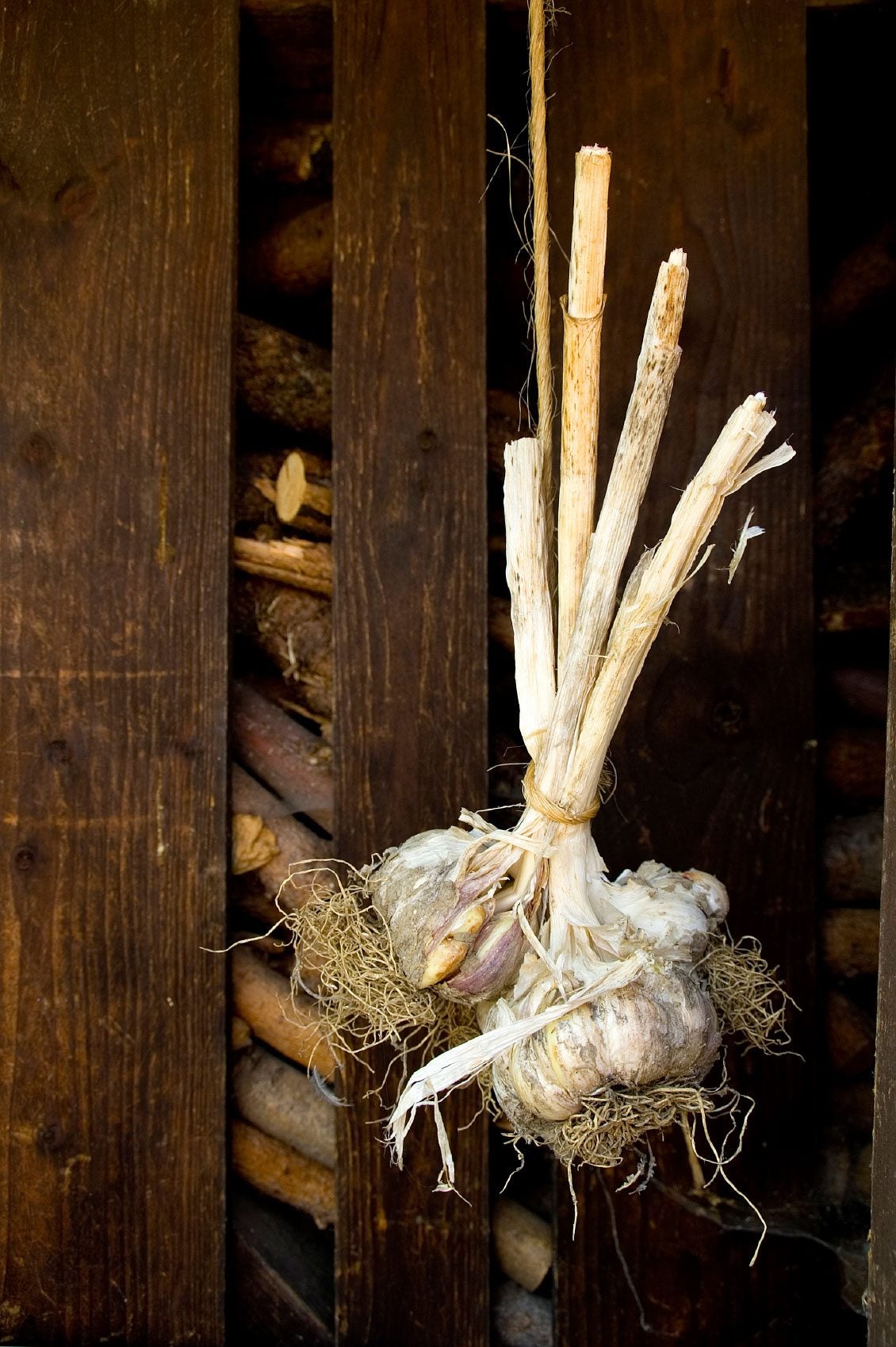
Garlic is found in almost every cuisine on the planet. This popularity has led to more and more people trying to cultivate their own bulbs. This leads one to wonder how to save garlic for next year's crop.
How to Save Garlic for Next Year
Garlic originates from Central Asia but has been cultivated for over 5,000 years in Mediterranean countries. The ancient Greeks and Romans enjoyed garlic with reports of gladiators consuming the bulb prior to battle. Egyptian slaves are purported to have consumed the bulb to give them the strength to build the great pyramids. Garlic is one of 700 species in the Allium or onion family, of which there are three specific types of garlic: softneck (Allium sativum), hardneck (Allium ophioscorodon), and elephant garlic (Allium ampeloprasum). Garlic is a perennial but is usually grown as an annual. It is a relatively easy plant to grow provided it has full sun exposure and well amended, well-draining soil. Your garlic will be ready for harvest in the mid to late summer. Leave the bulbs in the ground as long as possible to allow them to attain maximum size, but not so long that the cloves begin to separate, which adversely affects garlic bulb storage. Wait for the foliage to die back and begin to brown, then carefully lift the bulbs out of the soil, taking care not to cut the bulb. Fresh bulbs bruise easily, which may encourage infection and affect the storing garlic bulbs, effectively cutting their shelf life.
Storing Garlic Bulbs
When storing garlic bulbs, cut the garlic stalks an inch (2.5 cm.) above the bulb. When saving garlic stock for the next year, the bulbs need to be cured first. Curing bulbs simply involves drying the garlic in a dry, warm, dark, and ventilated area for a few weeks. Select your largest bulbs when saving garlic stock for planting the following year. Curing the garlic bulbs properly is crucial to storing garlic for planting. If you cure outdoors, the bulbs risk sunburn and poorly ventilated areas may facilitate disease and mildew. Hanging the bulbs from the stalks in a dark, airy space is one of the best methods. Curing will take anywhere from 10 to 14 days. The bulbs will be successfully cured when the neck has constricted, the center of the stem has hardened, and the outer skins are dry and crisp. Proper storage is also crucial when saving garlic stock for planting. While garlic will keep for a short time at room temperatures of between 68 and 86 degrees F. (20-30 C.), the bulbs will begin to degrade, soften, and shrivel. For long term storage, garlic should be kept at temps between 30 and 32 degrees F. (-1 to 0 C.) in well ventilated containers and will keep for six to eight months. If, however, the goal of storing garlic is strictly for planting, the bulbs should be stored at 50 degrees F. (10 C.) at a relative humidity of 65 to 70 percent. If the bulb is stored between 40 and 50 degrees F., (3-10 C.) it will easily break dormancy and result in side shoot sprouting (witches brooms) and premature maturation. Storage above 65 degrees F. (18 C.) results in late maturation and delayed sprouting. Be sure to plant only seed garlic that has been properly stored and keep an eye out for any garlic blight nematodes. This nematode causes bloated, twisted, swollen leaves with cracked, mottled bulbs and weakens plants. When saving and storing garlic stock from one year to the next, plant only seed bulbs that appear unblemished and healthy for the best results.
Sign up for the Gardening Know How newsletter today and receive a free copy of our e-book "How to Grow Delicious Tomatoes".

Amy Grant has been gardening for 30 years and writing for 15. A professional chef and caterer, Amy's area of expertise is culinary gardening.
